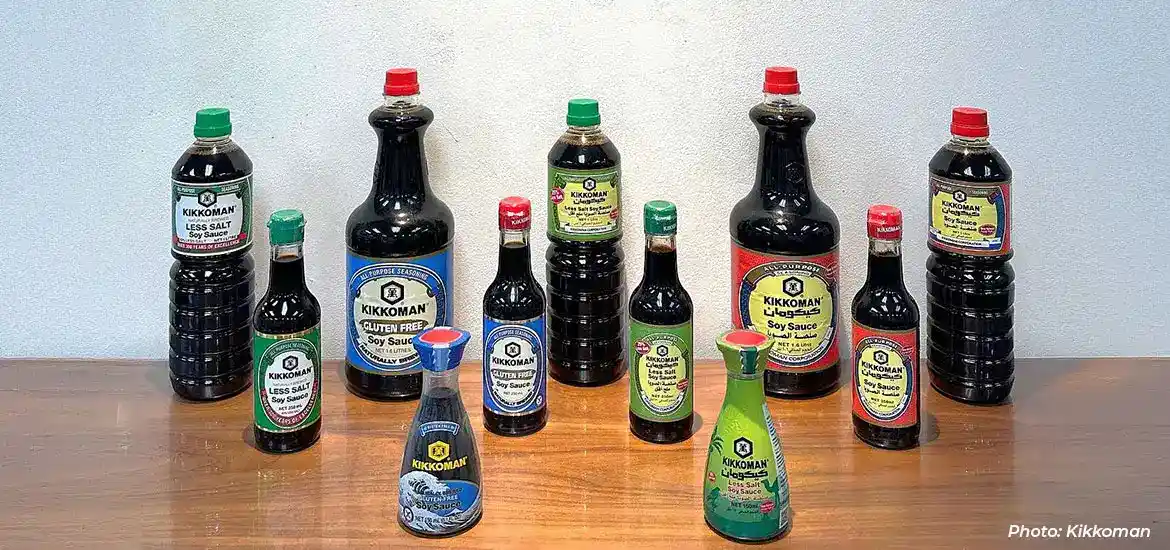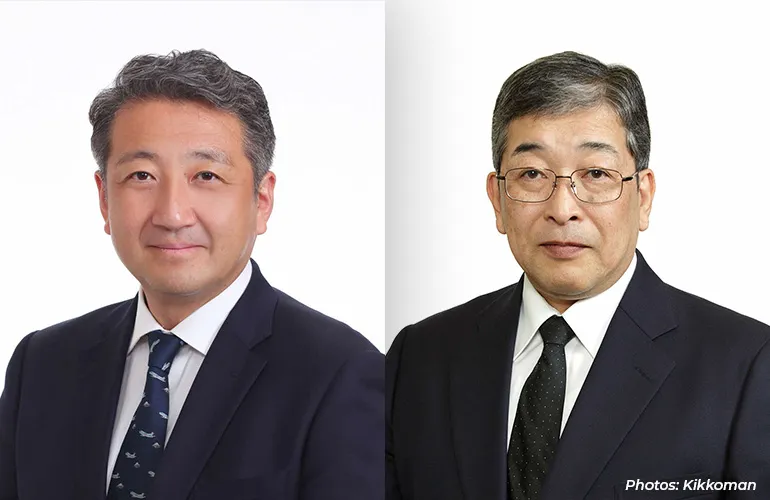Q. Looking back, what are some significant milestones or turning points for Kikkoman’s Singapore hub?
A: I think what sets Kikkoman’s Singapore hub apart is that it has consistently embraced new technologies, establishing a unique value within our global group.
For example, the Singapore hub was the first entity within the group to develop and produce differentiated and unique products like gluten-free and halal soy sauces.
At Kikkoman, we often share the knowledge of sales, marketing, and product development cultivated in Japan. The Singapore team then localises this knowledge to create products for various ASEAN countries, ensuring that what’s created meets the needs of our customers in each region.
We've developed a wide range of over 300 products here, from teriyaki sauce to hot pot broth and sukiyaki sauce, tailored to local tastes. Compared to Japanese consumers, for instance, those in Southeast Asia generally prefer a sweeter, richer umami flavor and dislike strong aromas. We meet these preferences by maintaining a balance of flavour and aroma in our soy sauce.
Q: What sort of partnerships has Kikkoman’s Singapore hub embarked on? What are some of its outcomes?
A: The Harumaru Chickpea Noodle Kit is the result of a prototype we developed that was brought to market through collaboration in Singapore.
By working with local manufacturers and marketing partners, we conducted test marketing that deepened our understanding of customer behaviour and preferences. Singapore’s diverse population provided an ideal environment for hypothesis testing as we explored market opportunities in the alternative protein sector. We then apply these insights into future product improvements and strategic planning.
We also collaborated with the Agency for Science, Technology and Research (A*STAR) in food processing and biotech.
Initially, the collaboration centered on the screening of enzymes and other useful substances. In recent years, we've expanded our research areas to include the development of alternative proteins and life-cycle assessment of Kikkoman’s manufacturing processes.
In one of the collaborations, Kikkoman combines Japan’s traditional fermentation and brewing expertise with A*STAR’s technology to optimise fermentation processes. Kikkoman remains committed to exploring future opportunities to apply this fermentation technology to its products.
Q: What role do you expect Kikkoman’s Singapore hub to play moving forward? What is your strategy for new business areas?
Osamu Mogi: With all our group companies for manufacturing, sales, product development, and research located here, our Singapore location can serve as a "regional innovation hub”. Especially for new business areas, it is crucial to establish a system that can accurately grasp local market needs and quickly develop and test prototypes.
We are also focusing on new business development that creates new value through collaboration with local partners in Singapore, a country with diverse talent. We will continue to aim for a strong presence in ASEAN, integrating our business with the unique food cultures of each region.








